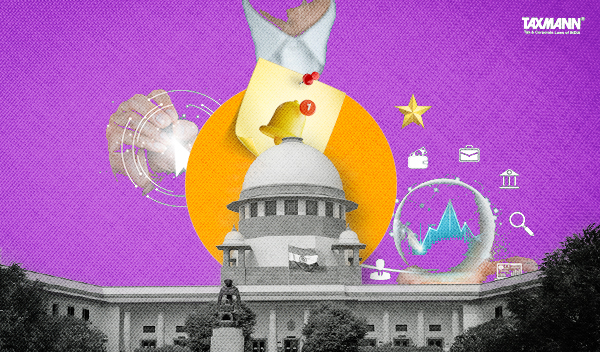[Opinion] Impact of Notification No. 09/2024-Central Tax (Rate) on Related Persons and Distinct Persons | Legal Analysis and Compliance
- Blog|News|GST & Customs|
- 2 Min Read
- By Taxmann
- |
- Last Updated on 15 October, 2024

R. Muthukumaran – [2024] 167 taxmann.com 311 (Article)
With Notification No. 09/2024 – Central Tax (Rate), effective from 10.10.2024, significant changes have been introduced in the treatment of renting commercial properties under the Reverse Charge Mechanism (RCM), specifically where the service is provided by unregistered persons to registered persons. While RCM is well understood, its implications for transactions involving related persons and distinct persons, especially those without monetary consideration, require detailed analysis. This article discusses these impacts and outlines the compliance requirements for businesses.
Related Persons and Distinct Persons under GST
1. Related Persons: The concept of related persons is explained in Section 15 of the CGST Act. According to the law, related persons include those who have certain predefined relationships. This is crucial because Schedule I of the CGST Act specifies that transactions between related persons are taxable, even if no consideration is involved.
A related person under GST may include:
- Family members (spouse, siblings, parents, children, etc.).
- Employer and employee.
- Entities where one controls or owns another (e.g., a parent company and its subsidiary).
- Common control (companies managed by the same set of individuals or shareholders).
- Partners in a partnership firm.
- Directors or key managerial personnel with control over a company.
Therefore, supplies of goods or services between any such related persons, even if no monetary compensation is exchanged, will be treated as taxable under GST.
2. Distinct Persons: Section 25 of the CGST Act defines distinct persons. These are entities that operate under the same legal entity but have separate GST registrations in different states or union territories. Supplies between these distinct persons are considered taxable even if there is no consideration, as the different GST registrations are treated as separate taxable entities.
Impact of Notification No. 09/2024 on Related Persons: Supplies Without Consideration
Notification No. 09/2024 requires that when an unregistered person provides the service of renting commercial property to a registered person, the recipient must pay GST under RCM. This rule becomes particularly important for transactions between related persons, where services may be provided without any formal exchange of payment.
For related persons, Schedule I of the CGST Act mandates that even transactions without consideration are taxable. For instance, if one related entity (or individual) allows another related entity to use commercial property rent-free, GST will still apply under RCM.
Example:
Imagine Mr. A owns a commercial property and allows Mr. B, his brother (a related person), to use the property for business purposes without charging rent. According to Schedule I, this transaction is considered a supply even though no money changes hands. With the introduction of Notification No. 09/2024, Mr. B (the registered recipient of the service) will now be required to pay GST on the notional value of the rental service under RCM.
The same applies to an employer-employee relationship, where an employer may allow an employee to use office premises without a formal lease. Such use of the property will also fall under RCM, with the employer required to pay GST on the Fair rent.
Click Here To Read The Full Article
Disclaimer: The content/information published on the website is only for general information of the user and shall not be construed as legal advice. While the Taxmann has exercised reasonable efforts to ensure the veracity of information/content published, Taxmann shall be under no liability in any manner whatsoever for incorrect information, if any.

Taxmann Publications has a dedicated in-house Research & Editorial Team. This team consists of a team of Chartered Accountants, Company Secretaries, and Lawyers. This team works under the guidance and supervision of editor-in-chief Mr Rakesh Bhargava.
The Research and Editorial Team is responsible for developing reliable and accurate content for the readers. The team follows the six-sigma approach to achieve the benchmark of zero error in its publications and research platforms. The team ensures that the following publication guidelines are thoroughly followed while developing the content:
- The statutory material is obtained only from the authorized and reliable sources
- All the latest developments in the judicial and legislative fields are covered
- Prepare the analytical write-ups on current, controversial, and important issues to help the readers to understand the concept and its implications
- Every content published by Taxmann is complete, accurate and lucid
- All evidence-based statements are supported with proper reference to Section, Circular No., Notification No. or citations
- The golden rules of grammar, style and consistency are thoroughly followed
- Font and size that’s easy to read and remain consistent across all imprint and digital publications are applied



 CA | CS | CMA
CA | CS | CMA

If I am a registered person receiving service of cold storage from unregistered person against which rent is paid, whether rcm will be applicable on such transaction ?
RCM would apply to rent paid to unregistered persons on commercial property by the registered person